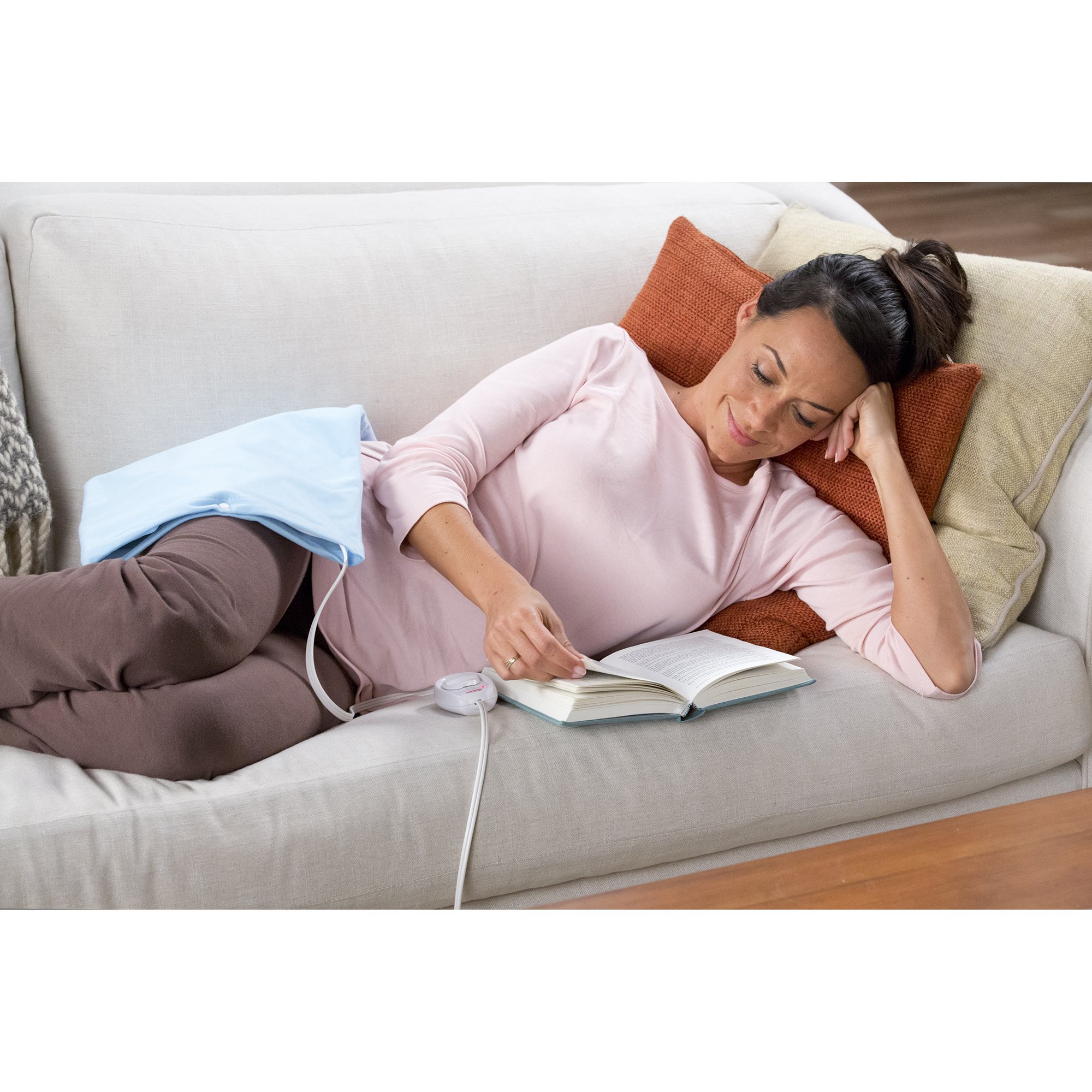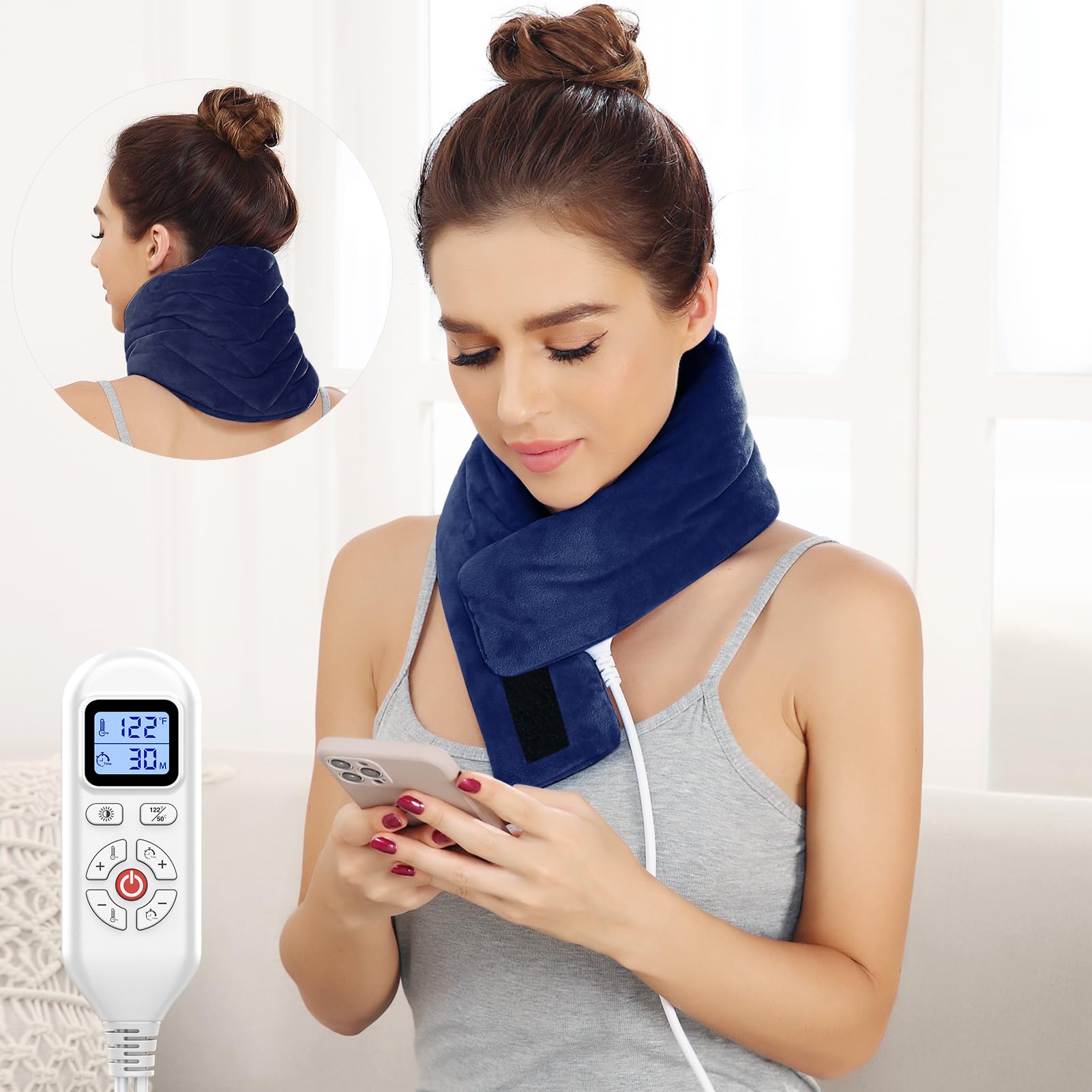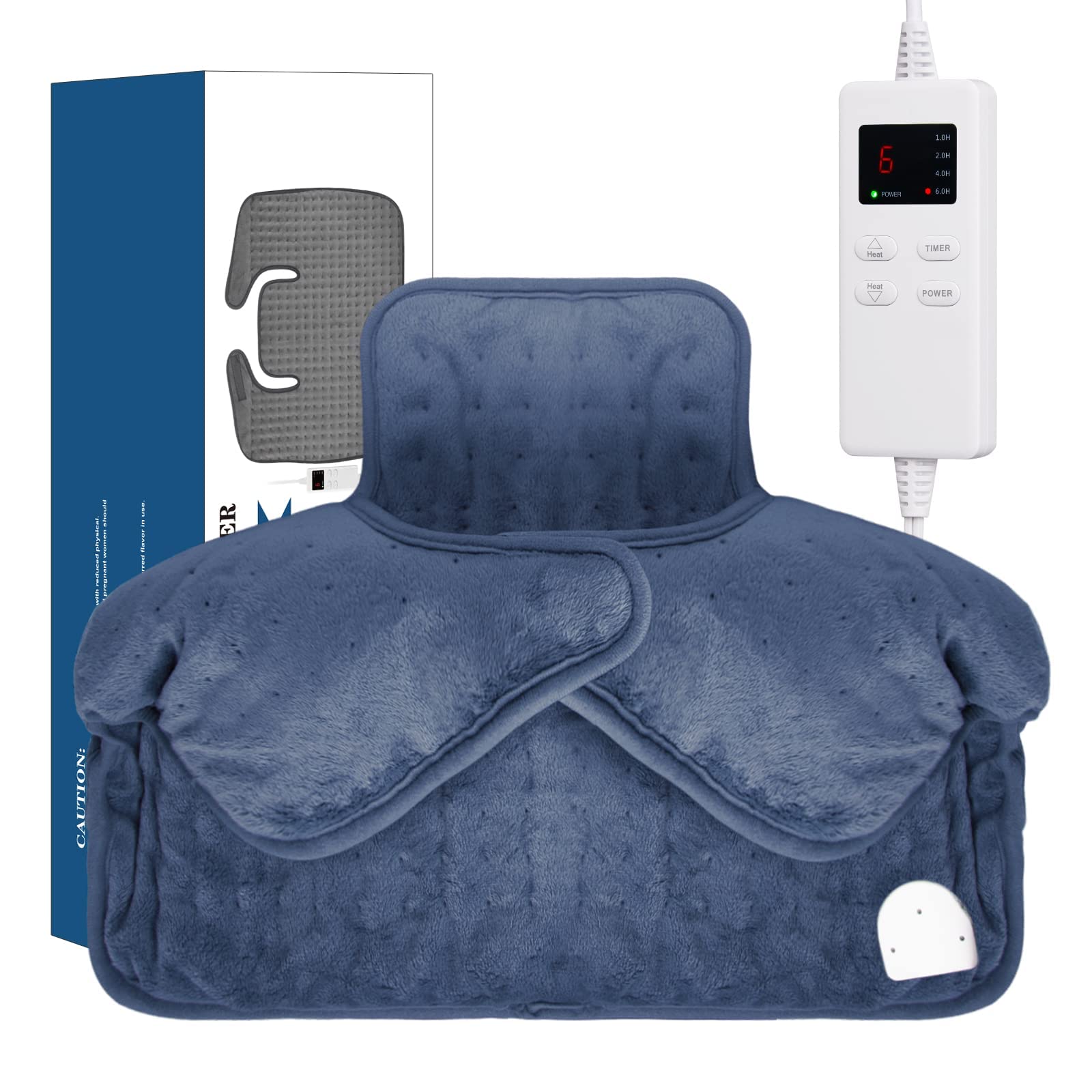Safe and Soothing Relief: Pregnancy Heating Pads
Introduction
Pregnancy is a beautiful and transformative time in a woman’s life, but it can also bring discomfort and aches. Heating pads can offer soothing relief during pregnancy, helping to alleviate muscle soreness, back pain, and other discomforts. However, it is important to use heating pads with caution during pregnancy, as excessive heat or improper usage can pose risks to both the mother and the developing baby. In this comprehensive guide, we will explore the benefits and considerations of using heating pads during pregnancy, discuss safety guidelines, highlight the types of heating pads suitable for expectant mothers, and offer tips for optimizing comfort and relaxation during this precious time.
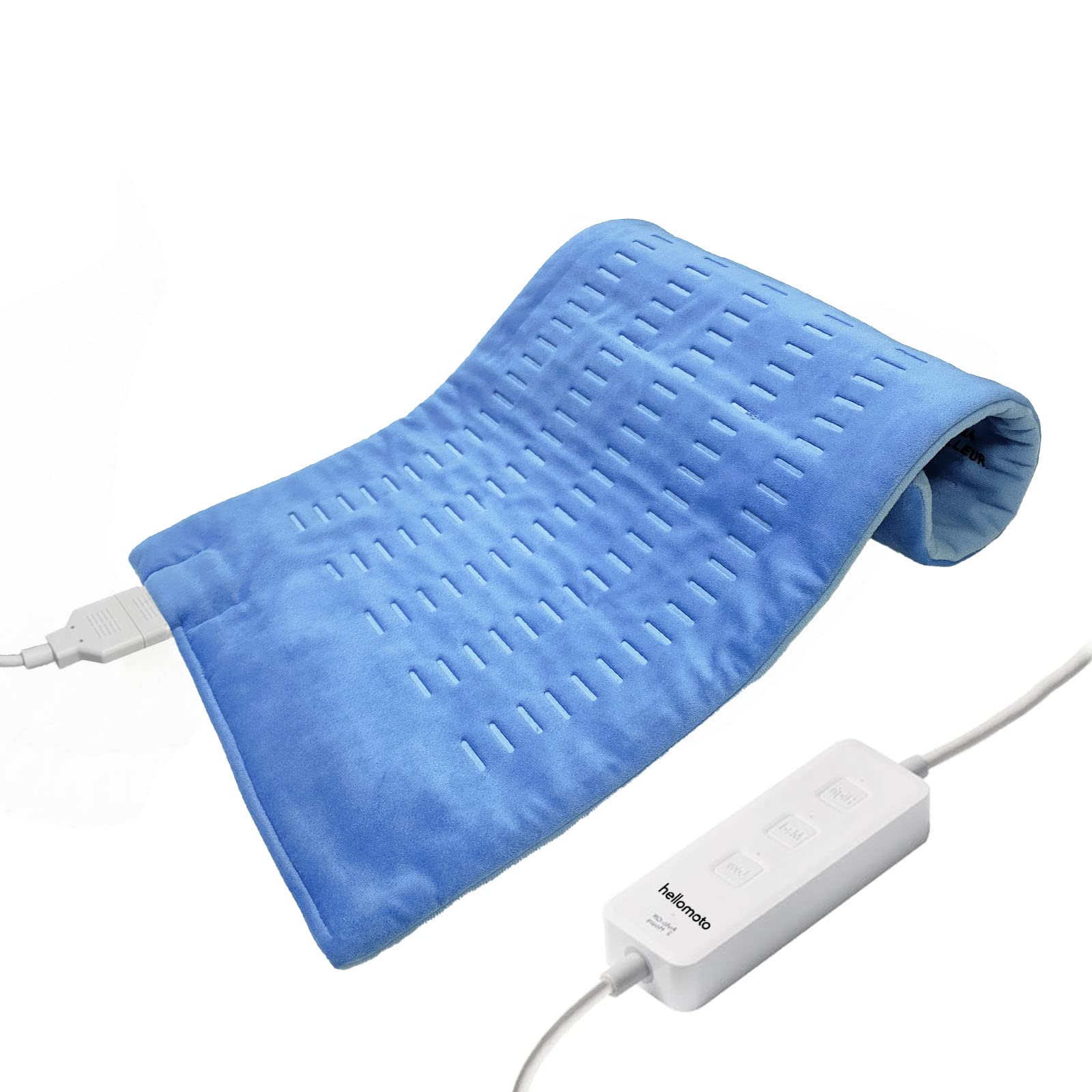
Safe and Soothing Relief: Pregnancy Heating Pads
I. Why Use Heating Pads during Pregnancy?
-
Relaxation and Comfort:
- Pregnancy can bring about muscle fatigue, tension, and discomfort. Heating pads offer warmth that can help soothe tight muscles, relieve minor aches, and promote relaxation during this physically demanding time.
-
Increased Circulation:
- The warmth from heating pads can enhance blood flow and circulation, aiding in the delivery of nutrients and oxygen to both the mother and the baby.
-
Stress Relief:
- The gentle heat of a heating pad can promote relaxation and relieve stress and anxiety, contributing to a more positive pregnancy experience.

II. Safety Considerations and Guidelines
-
Consult Your Healthcare Provider:
- Before using a heating pad or any heat therapy during pregnancy, consult with your healthcare provider. They can provide personalized recommendations based on your unique health situation.
-
Optimal Heat Settings:
- Choose heating pads that allow for adjustable heat settings to ensure that the temperature remains within a safe and comfortable range. Avoid using high-temperature settings and opt for moderate heat levels.
-
Limited Usage:
- Use heating pads in moderation and avoid prolonged or continuous usage. Experts recommend limiting heat therapy sessions to no longer than 20 minutes at a time.
-
Monitor Skin Sensations:
- Pay close attention to the skin’s response to heat. If you feel any discomfort, excessive warmth, or burning sensation, discontinue use immediately.
-
Location of Application:
- Apply the heating pad to localized areas of discomfort, such as the lower back or shoulders. Avoid placing the heating pad directly on the abdomen or any area near the womb.
-
Avoid Overheating:
- Excessive heat can be harmful during pregnancy. Make sure the heating pad does not get too hot and always follow the manufacturer’s instructions for safe usage.

III. Types of Heating Pads Suitable for Pregnancy
-
Electric Heating Pads:
- Electric heating pads offer adjustable heat settings and convenient features such as automatic shut-off timers, which enhance safety during use.
-
Moist Heating Pads:
- Moist heating pads provide a moist heat option that can penetrate deeper into the muscles, offering enhanced relief for pregnancy-related discomforts.
-
Gel Packs:
- Gel packs can be heated in a microwave or chilled in a freezer to provide adaptable and portable relief for various areas of the body.
IV. Comfort and Relaxation Tips
-
Proper Body Positioning:
- Use proper body alignment and positioning techniques to alleviate strain and pressure on the body. This includes using supportive pillows, cushions, or maternity support belts.
-
Warm Baths or Showers:
- Alternating the use of heating pads with warm baths or showers can provide additional relaxation and relief for pregnancy-related discomfort.
-
Gentle Stretches and Exercises:
- Engage in gentle stretches and exercises recommended by your healthcare provider or a prenatal fitness specialist to alleviate muscular tension and improve flexibility.
-
Mindful Breathing and Meditation:
- Practice deep breathing exercises and mindfulness techniques to reduce stress and promote relaxation, creating a calming environment for you and your baby.
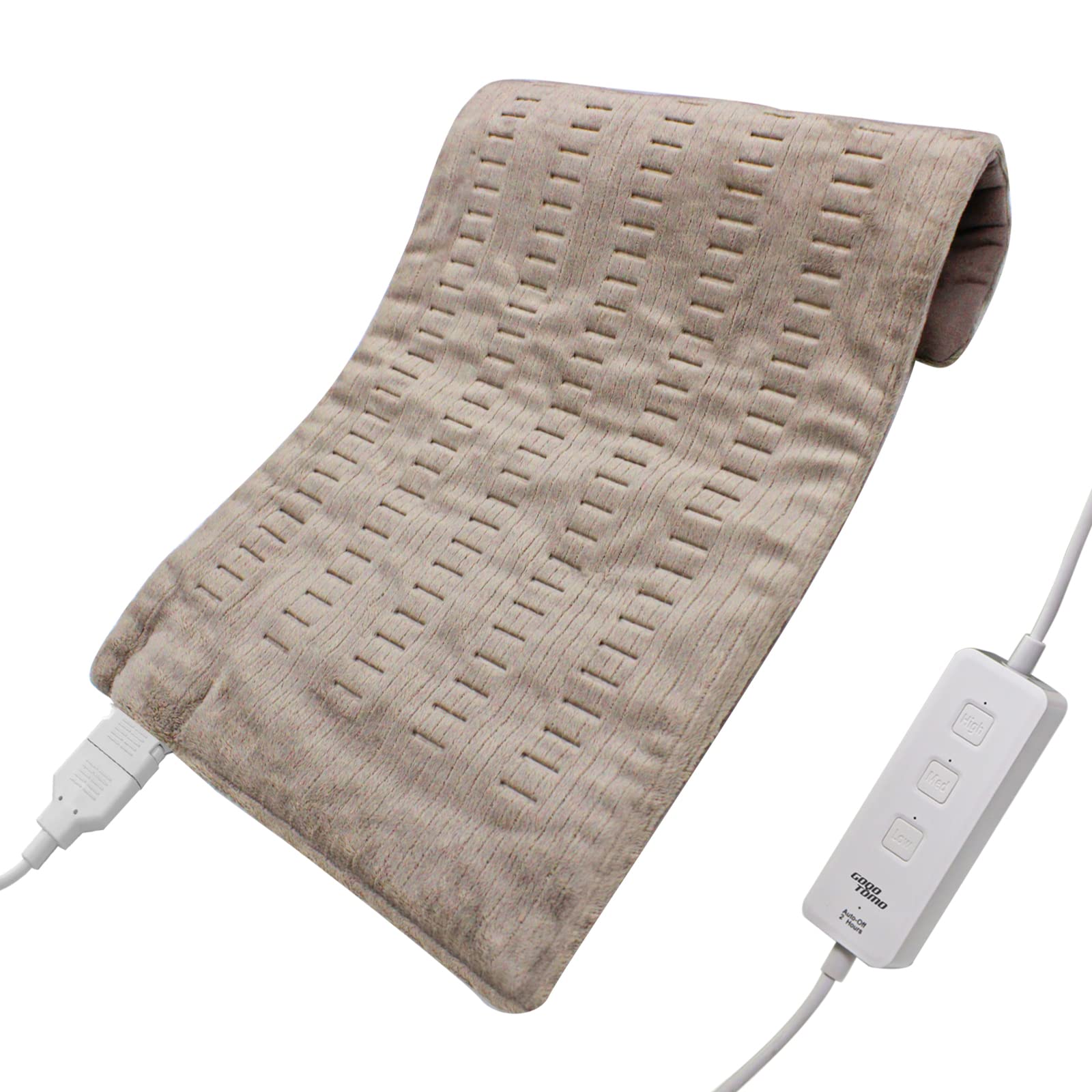
VI. Alternative Options to Heating Pads during Pregnancy
-
Warm Compresses:
- Instead of heating pads, you can use warm compresses or warm towels to apply gentle heat to areas of discomfort. These can be heated in warm water and applied for short durations to provide relief.
-
Warm Baths or Soaks:
- Taking warm baths or foot soaks can provide overall relaxation and relieve muscle tension. Ensure that the water temperature is comfortable and safe for pregnancy, and avoid staying in the bath for an extended period to prevent overheating.
-
Massage Therapy:
- Consider seeking the services of a certified prenatal massage therapist who can safely provide relief through gentle, specialized massage techniques. Massage can help reduce muscle soreness, increase circulation, and promote relaxation during pregnancy.
-
Maternity Support Bands or Belts:
- Maternity support bands or belts can alleviate lower back discomfort by supporting the body’s changing shape and distributing the weight of the baby. These provide gentle compression and support to targeted areas.
VII. Additional Safety Precautions and Considerations
-
Allergies and Sensitivities:
- Take care when choosing heating pads or alternative therapies to ensure that you are not allergic or sensitive to any materials or ingredients used. Read product labels and consult with your healthcare provider if you have any concerns.
-
Proper Hydration:
- Keep yourself adequately hydrated throughout pregnancy to maintain optimal body temperature and support overall well-being. Drinking enough water helps in regulating body heat and preventing dehydration.
-
Individual Comfort Levels:
- Each expectant mother’s experience of pregnancy discomfort may vary. It is essential to listen to your body and adjust heat therapy or other alternatives according to your comfort level.
Do I need to wash my heating pad for pregnancy often?
During pregnancy, it is important to prioritize your comfort and safety. While there is no specific guideline on how often you should wash your heating pad during pregnancy, it is advisable to keep it clean to avoid any potential irritation or infection.
It is generally recommended to follow the manufacturer’s instructions for cleaning and maintenance. Some heating pads may have removable covers that can be machine washed, while others may need to be spot cleaned or wiped down with a damp cloth.
If you are uncertain about the cleaning process or have any concerns, it is best to consult with your healthcare provider. They can provide personalized advice based on your specific pregnancy needs and any potential risks associated with using a heating pad.
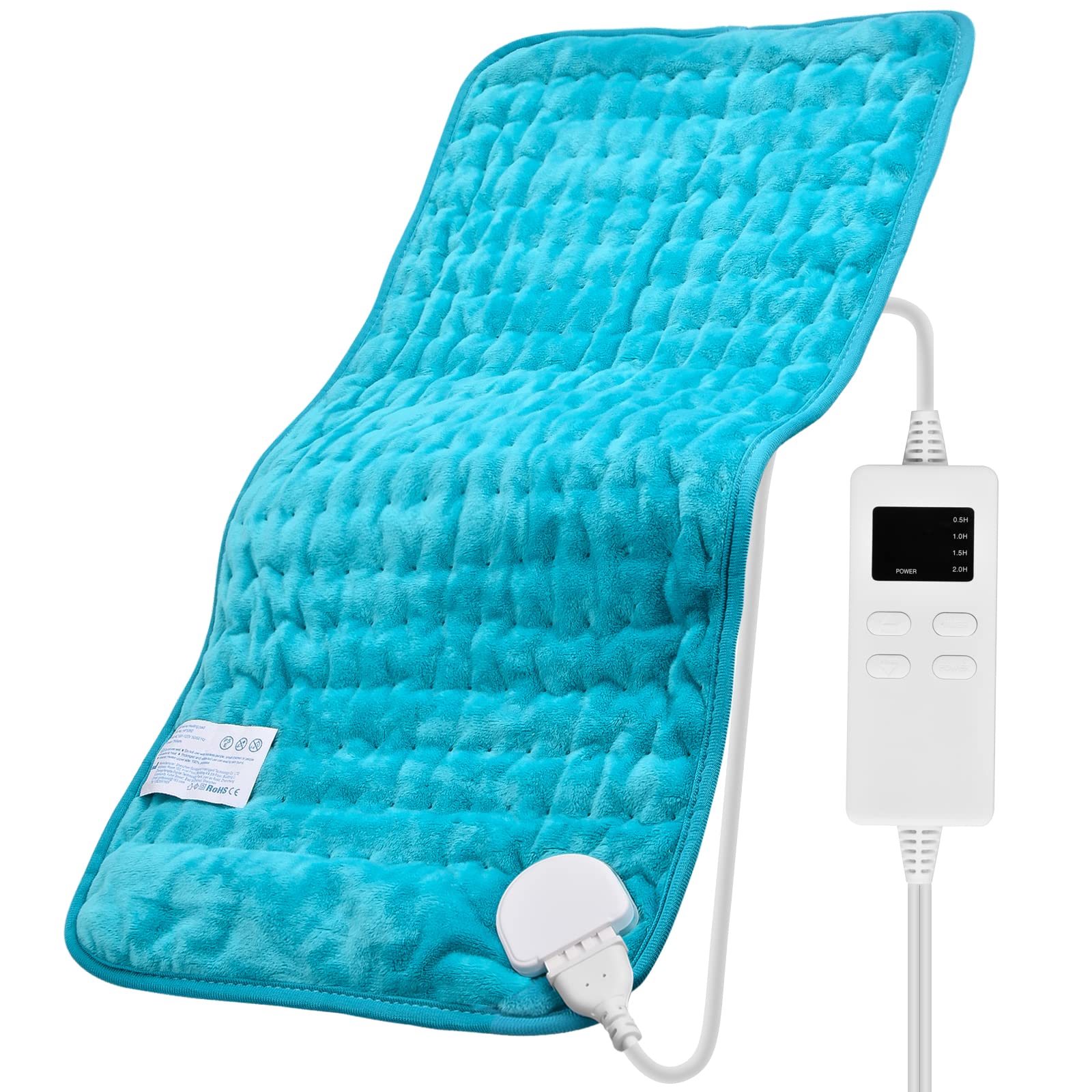
V. Conclusion: Nurturing Self-Care during Pregnancy
Using heating pads during pregnancy can offer safe and soothing relief for muscle soreness, tension, and discomfort. By following the safety guidelines, opting for suitable types of heating pads, and embracing additional comfort and relaxation techniques, expectant mothers can prioritize their self-care and well-being during this transformative time.
Remember to maintain open communication with your healthcare provider, listen to your body’s needs, and seek professional guidance when necessary. With the right approach, heating pads can become a valuable tool in your self-care routine, providing comfort and relaxation throughout your pregnancy journey. Embrace the warmth and tranquility they offer as you nurture yourself and your growing baby.
